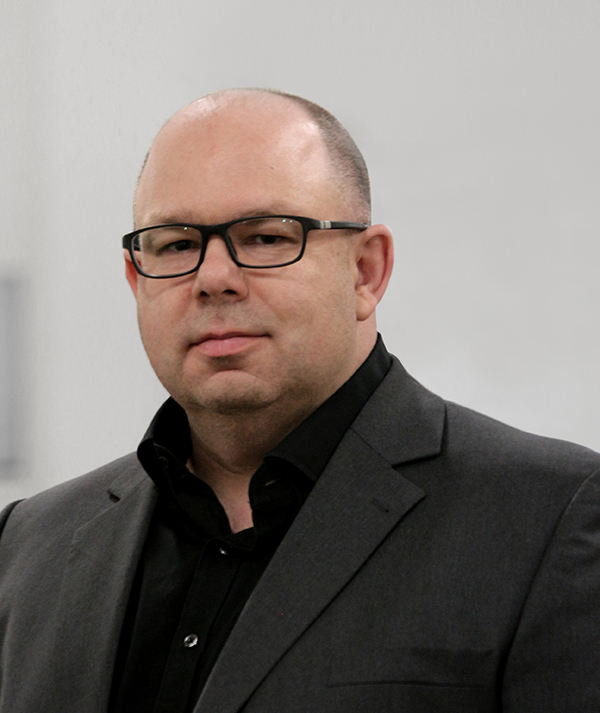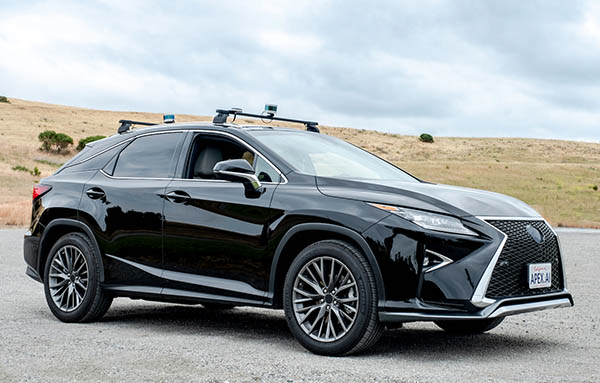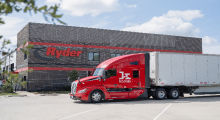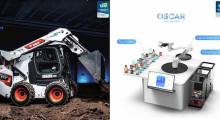Apex.AI Inc., which has developed safety-certified software for mobility and autonomous applications, today said it has raised $56.5 million in Series B funding. The company said it plans to use the financing to scale up globally and expand into new markets.
“Disruptions in mobility such as self-driving, connected vehicles, e-mobility, and shared mobility all rely on software but lack a unified platform, which prevents integrated development across the vehicle,” stated Jan Becker, co-founder and CEO of Apex.AI. “We introduced Apex.OS as the first mobility software platform that can integrate across all in-vehicle domains and extend into the cloud to solve this challenge.”
“We are experiencing an overwhelming demand for our product and will use the Series B funds to scale our business to be able to serve more customers,” he said.
Apex.OS enables faster and easier software development for autonomous vehicles, according to Apex.AI. The company's software development kit (SDK) is intended for OEM developers who need to integrate artificial intelligence with the entire vehicle, as well as developers implementing safety-critical, self-driving applications.
Apex.OS obtains safety certification
Apex.AI said it has made significant progress in 2021. “Since the 1.0 release in early 2020, we've enhanced it further for the 1.2 release,” Becker told Robotics 24/7.

TÜV NORD certified Apex.OS for functional safety according to the highest level of ISO 26262, verifying that the meta operating system is production-ready.
“The automotive safety certification is our most significant milestone this past year,” said Becker. “We had to change quite a bit to meet certification requirements. Apex.OS is a real-time fork of ROS 2.”
“Our first challenge was that real-time processing could not rely on dynamic memory allocation, which happens almost automatically in C++,” he explained. “In automotive systems, resources are constrained, and memory could run out.”
“We've reworked memory allocation to be static when booting up CPUs,” Becker said. “Memory is pre-allocated, which is a major change.”
“Second, ROS relies on locking,” he added. “We changed it to never write directly to disk but to the buffer, decoupling access from execution.”
Also this year, Apex.AI opened new offices in Stuttgart, Germany, and Palo Alto, Calif., in addition to facilities in Berlin and Munich. The new Palo Alto office is a Silicon Valley historical landmark and the former Fairchild building where Dr. Robert Noyce invented the first commercially integrated circuit inside small silicon chips in 1959.
Apex.AI helps power IAC
Apex.AI has provided technology based on the Robot Operating System for the Indianapolis Autonomous Challenge (IAC), in which autonomous racecars drove on the Indianapolis Motor Speedway.
“We're one of the main contributors to Eclipse Cyclone DDS and Eclipse iceroyx for the ROS 2 Galactic Geochelone release, which was used by all teams in the race,” said Becker. “We also worked with the TU Munich team and addressed specific use cases.”
“Joe Speed recently joined Apex.AI, and he's a great adviser and supporter of the IAC,” he noted. “Thanks to the ROS community, there are a lot of tools we don't have to redevelop. We can make some refinements and invest back into the community. Every student coming out of university already knows ROS for research and development, which helps us with Apex.OS for production.”
Investors support software approach
Orillion led Apex.AI's Series B round, which brings its total funding to $74 million to date. New participants included ZF, Continental AG, AGCO, Canaan, Lightspeed Venture Partners, Airbus Ventures, and Jaguar Land Rover’s InMotion Ventures. Other previously announced investors included Volvo Group Venture Capital, Toyota Ventures, and HELLA Ventures.
“We have a lot of strategic investors, predicated on technology partnerships,” said Becker. “All of these relationships have been built up over quite some time.”
“Based on the Apex.OS, we can offer our customers an additional ZF Middleware option,” said Nico Hartmann, head of the ZF Global Software Center. “This solution is certified to the highest standards of functional safety for passenger cars and commercial vehicles. Thus, we offer our customers an alternative to Autosar Adaptive.”
In addition, Apex.AI will add two new board members: Ahmed Sallam, partner at Orillion, and Paul Balciunas, chief financial officer at Apex.AI. Sallam has more than 18 years’ experience in investment banking and principal investment. Balciunas has nearly two decades of experience in banking and finance, and he has held multiple senior roles at U.S. automotive companies.
“Advanced software has become critical to the success of the automotive industry, as vehicles are now more complex than ever,” said Sallam. “Apex.AI has cornered a unique market by making it easier for manufacturers to implement safety-critical software into mobility systems.”
Apex.AI to use funding to continue expansion
Apex.AI plans to use its latest funding to expand into markets adjacent to the automotive industry including agriculture, construction, mining, industrial automation and robotics, and the Internet of Things (IoT), Sallam said. In addition, the company is hiring across all locations to more than double its team.
“Our focus for 2022 is threefold,” said Becker. “First, we're growing our engineering team to develop Apex Middleware, and we're significantly ramping up our team to work with customers.”
“Second, we're working on a zero-copy solution to transport data from one process to another,” he added. “With three open-source, automotive-grade implementations, our middleware can choose the best transport mechanism.”
“Lastly, we're expanding to Japan and North Korea,” Becker said. Former Panasonic executive Tavis Szeto will be vice president of Asia-Pacific (APAC).
Looking to the future of autonomy
“Apex.OS is application-agnostic,” said Becker. “It's fundamentally ready to run in Level 2 to 5 systems, and we're looking at smart machines beyond mobility, including robots and IoT.”
“What we see from our customer base is a lot of investment into autonomous trucking, and we have a lot of ADAS [advanced driver-assist system] customers,” he said. “Some customers are also looking at interior sensing and cabin monitoring. We have a project developing gateways for vehicles.”
“There's also interest in robotaxis,” Becker said. “Robotaxi companies focus on very narrow vertical integration, but most established automotive companies understand that they need to address many different use cases.”
“The full stack is hard, so it's better to slice up the problem. It's feasible depending on how you define the problem—driving cross-country in all weather is years out, but only driving in highways or premapped environments is something that can be solved within a reasonable time,” said Becker. “We provide a thin, wide, horizontal solution, which exactly how ROS is defined.”
“We have a wide variety of customers that have invested in the company,” he concluded. “They're not just end users, but also Tier 1s that understand what Apex.AI can address.”
About the Author
Follow Robotics 24/7 on Linkedin
Article topics
Email Sign Up
















